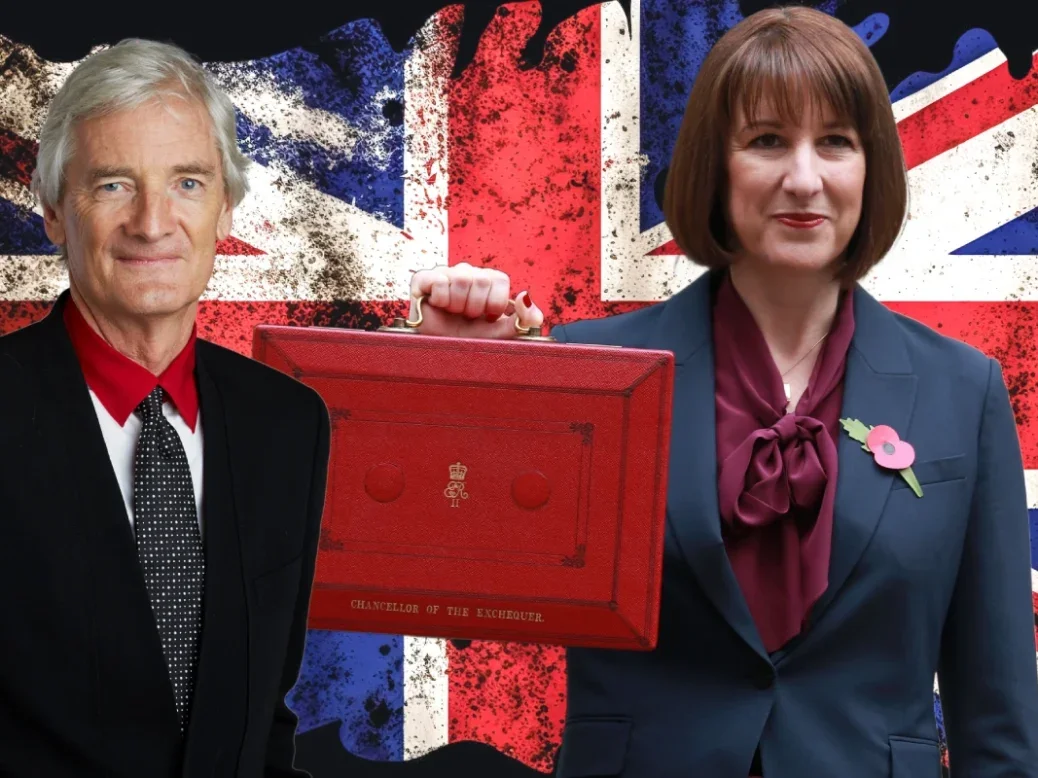
One of Britain’s richest men, Sir James Dyson, has blasted Rachel Reeve’s ‘spiteful’ Budget that he says will stifle entrepreneurship in the UK.
The chief engineer and founder of Dyson said the chancellor’s changes to inheritance tax were a ‘tragedy’ that would rip ‘the fabric of our economy’ apart.
Inheritance tax changes under Labour include tightening agricultural and business relief. Farms and other business property, which had been passed on to heirs tax-free, will have to pay 20% of their value above £1 million, half the inheritance tax rate of 40% from 5 April 2026.
The £325,000 Inheritance Tax exemption has been frozen until April 2030.
In an opinion piece for The Times, Dyson, whose net worth is $13.4 billion, wrote: ‘Make no mistake, the very fabric of our economy is being ripped apart. No business can survive Reeves’s 20 per cent tax grab. It will be the death of entrepreneurship. Think of the jobs for “working people” that will be lost — or never created.’
[See also: Where have all the UK billionaires gone?]
Negative impact on HNW and UHNW individuals
Experts have expressed similar concerns over succession planning and its effects on the UK’s HNW community in the wake of the first Labour Budget in nearly 15 years last Wednesday.
Peter Burgess, partner at Burgess Mee told Spear’s: ‘With the increased inheritance tax on business assets, older individuals with business interests are likely to be considering their succession planning, including their marital status and residence within the jurisdiction.’
Burgess’ comments were echoed by others from the private wealth world.
Ben Sharples, partner, Agriculture, Michelmores described the announcement as ‘a hammer blow to the ambition of maintaining viable farms’.
‘The relief of a £1 million exemption aimed at preserving family farms is not going to go very far when considering land values of £10,000 per acre, never mind the value of farmhouses and buildings,’ Sharples said. ‘An effective tax rate of 20% on everything above £1 million is much more severe than many were expecting.’
Iwan Williams, Partner, Tax, Trusts & Succession, Michelmores said: ‘The Chancellor’s announcement that Agricultural Property Relief (APR) and Business Property Relief (BPR) is to be materially restricted from April 2026 is likely to trigger a widespread review of succession planning for businesses, farming families and landed estates. Changes to APR and BPR were mooted pre-Budget, but this still comes as a shock – it is a substantial change and will have a profound effect on farmers and estates.’
Gabriel Estevez, banking and finance partner in the private wealth group at law firm Taylor Wessing said the changes to inheritance tax, capital gains tax and non-dom changes will have a ‘big impact on the economy’.
‘UK public companies have already taken a kicking over the last few years post-Brexit and through Covid and the Government’s proposed changes are likely to have an equally negative impact on HNW and UHNW individuals. It all adds to the perception that the UK is not open for business or welcoming to UHNW individuals,’ he added.
Basil Dixon, partner Payne Hicks Beach said the chancellor’s ‘material changes’ to the IHT regime for agricultural property and business property, together with increases to Employer’s NICs and changes to employment rules, would be ‘hugely detrimental to hard-working family businesses across the country’.
‘These are businesses that add huge value to the economy and they are being taken for granted,’ he said.
The Dyson dynasties
Dyson founded his business in 1991, and his bagless vacuum cleaners revolutionised the market. Established in Malmesbury, Wiltshire, the company now operates in 80 countries and has 14,000 employees worldwide. Dyson’s output has expanded to include air purifiers, hand dryers, bladeless fans, heaters, hair dryers, and lights.
Now 77, Dyson said his company did not start turning a profit until he was in his 50s.
Dyson said the tax unfairly targeted British family businesses.
[See also: From capital gains to inheritance tax, what the budget means for Britain’s wealthy]
‘Companies operating here but owned by overseas families won’t have to pay Labour’s tax. Private equity-owned firms won’t pay. Public companies listed on stock markets won’t pay. No, it is just homegrown, British family companies that will pay. This is a tragedy.
‘Reeves ignores the fact that the wealth of this nation is built not by government but by private enterprise and entrepreneurs. These working people toil outside the safety of public employment, to fund her spending sprees with their taxes. The state is there to support private individuals in their endeavours, not the other way round.’
He continued: ‘Every business expects to pay tax, but for Labour to kill off homegrown family businesses is a tragedy. In particular, I have huge empathy for the small businesses and start-ups that will suffer.
‘Labour has shown its true colours with a spiteful budget. It detests the private sector and has chosen to kill off individual aspiration and economic growth.’






